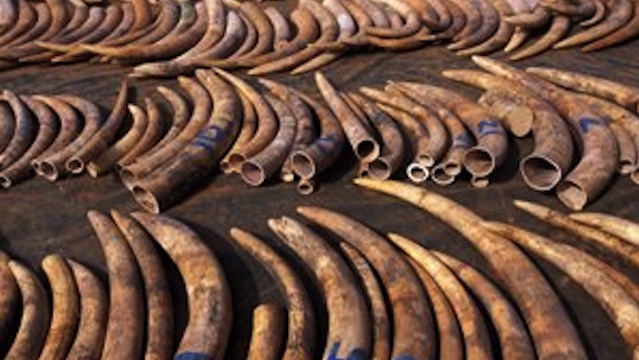SUMMARY
This is AI generated summarization, which may have errors. For context, always refer to the full article.

CEBU CITY, Philippines – The Bureau of Customs (BOC) in Cebu has made an assurance that no ivory product, including tusks, has been smuggled in the region since ivory trade was banned in 1989.
“I’m 100% confident that there is no smuggling of ivory tusks or ivory products in Cebu. We would not allow it. We are monitoring it every day,” said the BOC’s top official in Cebu, district collector Ronnie Silvestre, amid an ivory smuggling controversy involving a Cebu-based priest.
He said reports on alleged ivory smuggling, especially in Central Visayas, is “unfair” for the BOC.
Silvestre, however, said he is saddened by the alleged involvement of Cebu-based Monsignor Cristobal Garcia in the illegal trade. He noted that based on reports, Garcia and another priest still allegedly engage in the business.
In a news feature, the National Geographic magazine said Garcia even offered tips on smuggling illegal ivory products to the United States. National Geographic said the Philippines is a favorite destination for smuggled elephant tusks, which serve as raw material for Catholic icons.
The Convention on International Trade in Endangered Species of Wild Fauna and Flora (CITES) has banned international trade in elephant ivory since 1989. The Philippines signed and ratified this convention.
‘Difficult to monitor’
Customs Commissioner Ruffy Biazon, for his part, admitted that it is difficult to monitor smuggled tusks in the country. He said the illegal trade, after all, has existed for a long time.
He said smugglers employ methods like discreetly keeping ivory products in bags to avoid detection in ports, and transporting these through small sea vessels across islands.
Echoing a report by CITES, Biazon said the Philippines is merely a transit point for ivory products to other countries in the region.
The BOC’s job in regulating these products becomes harder, according to Biazon, because locals see nothing wrong with illegal ivory trade.
Meanwhile, the National Bureau of Investigation has been asked to investigate illegal ivory trade in the Philippines.
At the same time, the Vatican is investigating Garcia for another allegation – child abuse. The Catholic Church has suspended the monsignor. – Ryan Christopher J Sorote/Rappler.com
Add a comment
How does this make you feel?
There are no comments yet. Add your comment to start the conversation.